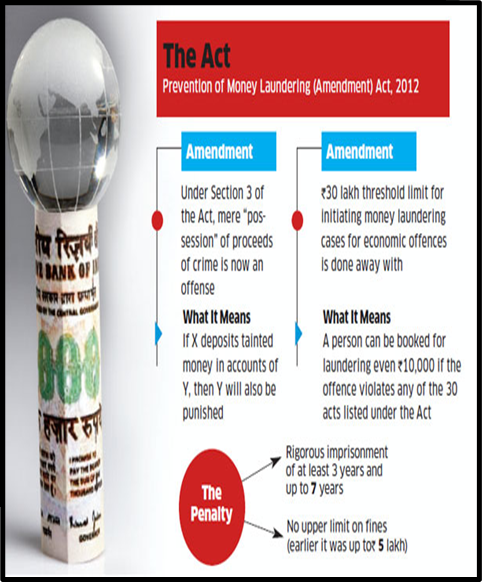ED CAN SUMMON ANYONE FOR ‘ANY INFORMATION’: SC
Why in the news ?
Supreme Court upholds Enforcement Directorate’s authority to summon individuals; Tamil Nadu District Collectors criticised for non-compliance.
Source:wordpress
About the Supreme Court Affirms ED’s Powers:
- Summoning Authority: SC upholds ED’s authority to summon individuals for any information, endorsing its broad investigative powers.
- Four Tamil Nadu District Collectors rebuked for failing to comply with ED summons, citing election duties and data collection challenges.
- SC criticises their non-compliance, deeming it disrespectful to the court and the law.
- Section 50(2) of the Prevention of Money Laundering Act empowers ED to summon any person for evidence or record production.
- Collectors directed to appear before ED on April 25, emphasising their obligation to comply with summons under PMLA provisions.
| What is Money laundering ?
● Money laundering is disguising the origins of illegally obtained money to appear as if it came from a legitimate source. ● Criminal activities generate “dirty money” which is then laundered to make it seem legitimate. ● It involves various techniques to obscure the trail of illicit funds, enabling criminals to enjoy their proceeds. What is the Prevention of Money Laundering Act (PMLA), 2002? ● Enacted to combat money laundering. ● Provides for confiscation of property derived from money laundering. ● Applicable to financial institutions, banks, insurance companies, and their intermediaries. What is The Directorate of Enforcement (ED)? ● The Directorate of Enforcement (ED) investigates money laundering and foreign exchange law violations. ● It operates under the Department of Revenue within the Ministry of Finance. ● ED is a top financial investigation agency, ensuring adherence to Indian laws and the Constitution. |




